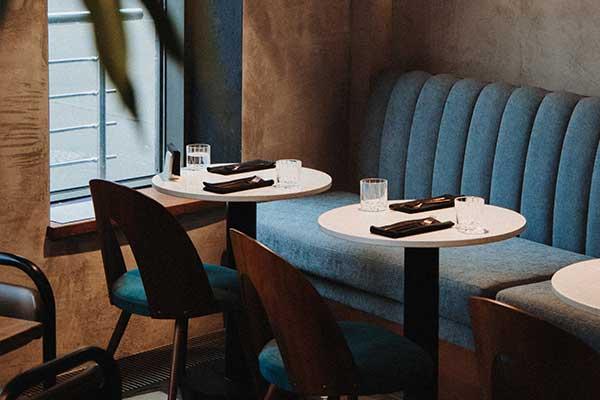How do you deal with late cancellations?

We all recognise it by now: customers are less likely to make reservations, often cancel a table, or turn out to be a no-show. In a series of blog posts, we will explain how you can prevent these things from happening, but also how you can maximise your table capacity by making proper use of the Resengo tools designed for this purpose.
Restaurant owners and hospitality operators increasingly face cancellations of reserved tables. Guests sometimes book in several restaurants and select their preference at the last minute. This way, the other reserved restaurants have to deal with late cancellations or even no-shows: people not showing up without notice.
Resengo is committed to working with you to get the best out of your business. That's why we would like to give some tips on how to deal with cancellations.
Make use of cancellation conditions
Cancellation conditions are a set of clearly defined rules concerning cancellations. By publishing these terms and conditions on your website, you will avoid a lot of worries.
Just make sure this information is clear and accessible to your guests.
Preventing cancellations with a deposit or credit card guarantee
More and more restaurants are using guarantees and advances for table reservations. A smart way to make it clear to your guests that a cancellation or no-show effectively affects the restaurant. After all, every late cancellation directly impacts the restaurant's revenue. Staff has been scheduled and ingredients are ready.
You can implement deposits with a direct payment during the reservation or by using a credit card guarantee.
When you charge a deposit during booking, it's best to mention your cancellation policy and deadline. That way, your guests will know the deadline by which they can cancel free of charge.
Want to know why deposits are so effective?
On the one hand, you create a psychological effect: reservations are only made when the guest is sure of their plans.
For the business on the other hand, the deposit covers part of the operating costs associated with the no-show or cancellation: staff, food costs, products, etc.
“Actually, I don't want to ask deposits. But it is necessary to make guests aware that if they cannot come they should notify the restaurant in time. That's just basic courtesy. We really do understand if something comes up. That's why our cancellation conditions are quite broad. Customers can cancel until 5 p.m. on Fridays and Saturdays. This means we understand situations that can change last minute. I am also very confident that if you cancel a table for 6 people before 5 o'clock, I will still be able to fill it.”
Szelim Man, Cuichine

Prevent cancellations with booking (re)confirmations
A reservation confirmation is an extra confirmation that your guests have to go through to reconfirm their reservation, right before their dinner or appointment. In practice, we find that this confirmation works very effectively against cancellations and no-shows.
After your guests have booked a table in your restaurant, they will receive a confirmation via e-mail or SMS. At a time of your choosing, e.g. 24 hours before the appointment, you ask your guest via the same means to reconfirm the reservation.
You immediately mention that their confirmation is mandatory. If no confirmation follows, the table will be released to other guests.

Fill empty tables anyway with last-minute marketing
Do you still have to deal with guests cancelling their reservations?
Turn your cancelled table into a last-minute deal! For example, you can quickly offer the empty table through a mix of different digital channels.
And with the right tools and marketing techniques, you have an even better chance of offering those tables to a wide audience.
Make guests aware of the impact of their cancellation
We find in practice that guests are often unaware of the impact of their cancellation. They enjoy a spontaneous evening and like to choose at the last minute what exactly they want to do and where to dine.
When this guest loses the paid deposit, it may seem like an overreaction to them. So it is still important to have the precarious conversation about no-shows and cancellations with your guests so that they understand why this is harming your restaurant.
“Asking for a deposit is very common abroad and is also widely accepted at high-status businesses. Slowly, other businesses are also starting to ask for deposits. Consumers should actually understand that it is difficult for everyone at this time. We are still recovering from the covid period and now we too are facing energy difficulties. This makes it that we definitely want to avoid no-shows.”
Tim Van den Heuvel, Mission Masala
Resengo helps you out!
At Resengo, we know that a smart fight against no-shows and cancellations can make all the difference. That's why we help you in every possible way!
In your dashboard, you can use deposits, reservation confirmations and other tools.
We also keep an eye on things. For example, our system automatically notices when the same person books at different restaurants at the same time, in which case we ask guests to cancel reservations so that only one reservation remains open.
Resengo tips to deal with cancellations
Make your guests aware of the impact of their cancellation
Ask for a deposit or credit card guarantee during booking
Work with a reservation confirmation
Provide opportunities to handle cancellations with last-minutes

